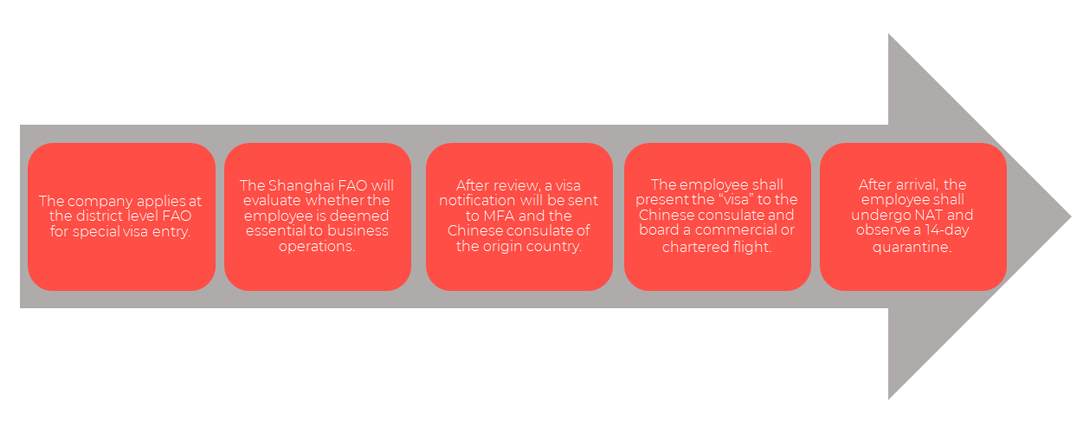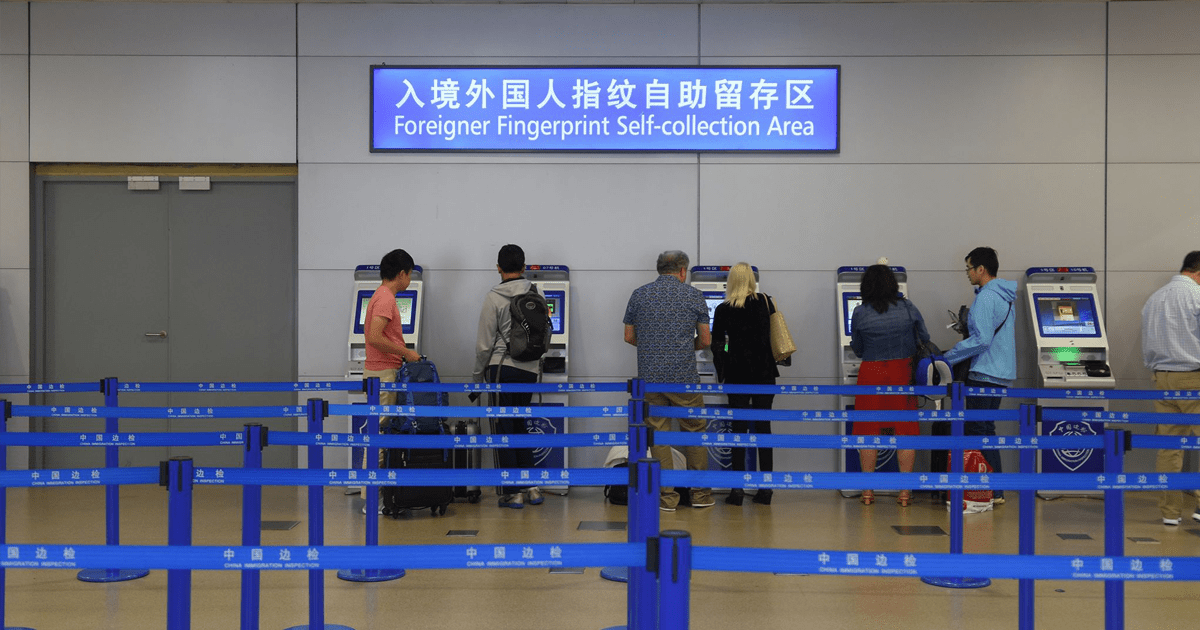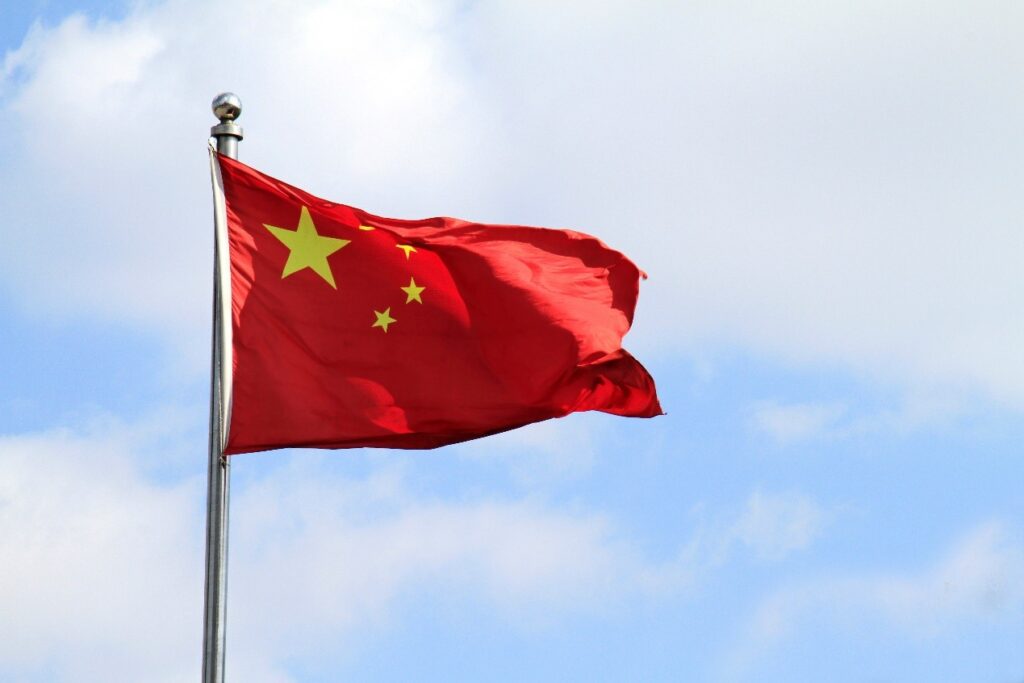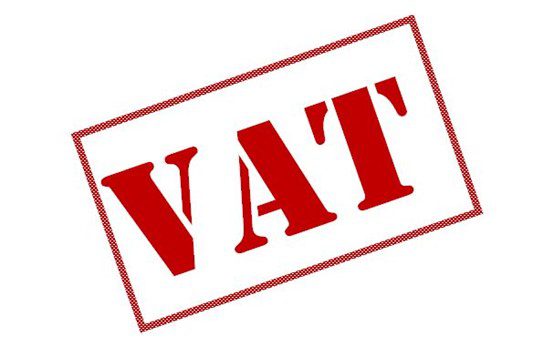China is gradually re-opening its borders to key workers following a fast track agreement with some countries. However, the new travel regulation requires a special permit application and adherence to nucleic acid testing and quarantine measures. Furthermore, every traveler is required to participate in the country’s new health code scheme.
Read our previous article about The Health Tracker in China and How the Code Works
The state-level negotiations led to the easing of entry after a travel ban imposed on foreign nationals last March. Keep reading for more details.
Major policies concerning the entry of foreigners
Nucleic acid testing and 14-day quarantine period
Major cities like Beijing and Shanghai have required nucleic acid testing (NAT) for all overseas travelers into China. This policy served as a response against the rise in COVID-19 imported cases in the country. Furthermore, authorities also required incoming travelers to go through a 14-day medical observation or quarantine period after their arrival.
Additionally, overseas travelers entering China should pay for all expenses incurred during the process including the cost for testing. However, the cost will be based on whether the foreigner has basic medical or commercial insurance. According to the Shanghai Municipal Government, the cost for the test amounts to RMB 240 (USD 34) per individual (for Chinese citizens) and RMB 100 (USD 713) per company application.
Five Ones Policy
The Civil Aviation Administration of China announced the so-called “Five Ones” policy which would only allow one flight per week to one city or country. Chinese airlines could only take one route once a week to any one country. Likewise, foreign airlines could only have one flight a week to one city in China.
Based on this policy, the number of weekly international flights was reduced to 134. Although CAAC initially hinted plans to increase the flights to 407, this did not take place. Instead, CAAC extended the said restriction until October 2020.
Alongside the flight restrictions, CAAC and other relevant departments also established 12 designated first points of entry into China for incoming flights to Beijing. Therefore, specific airlines with inbound flights to Beijing must land their carriers on these first entry points instead of Beijing.
Ban on the entry of foreign nationals
Effective on March 28, 2020, the National Immigration Administration imposed a travel ban for all foreign nationals holding a Chinese visa.
Have a look at the details here: Chinese Visa and Immigration Policies during COVID-19
Up to the present, foreigners are still not allowed to enter China unless they are covered by the fast track channel agreement.
Fast Track, Green Channel: What are the special procedures?
On April 30, 2020, China’s Foreign Ministry Spokesperson Gen Shuang confirmed during a press conference that China and Korea have agreed to establish a “fast track’ entry system for travelers who have essential or urgent trips. These travels would come from various sectors of business, logistics, production, and technical services. The spokesperson also added that China was already in talks with other countries about this system.
Thus, the fast track channel intends to support the economic growth and stability of the international industrial and supply chains.
Since May 1, 2020, Korean nationals traveling to China for business purposes may qualify for the said fast track channel. This is possible if they meet the following conditions:
- Sponsored by a Korean or Chinese firm permitted to use the channel;
- Has a letter of invitation from the sponsoring firm.
Moreover, China and Singapore also agreed to facilitate personnel exchanges via a “fast lane” for the re-opening of trade and supply chains.
Other countries that are reportedly on the list of the “fast track, green channel” program include Japan, the UK, Germany, France, Italy, and Switzerland. Thus, airlines from these countries can schedule business chartered flights to China. The special channel will allow companies to send their employees back to China given that they are deemed essential or urgent to business operations.
Special entry procedure for Shanghai-based companies
On May 22, 2020, the Shanghai Foreign Affairs Office detailed the special procedures involving the normal and fast track channels for foreign employees into Shanghai. Below are the steps for the normal channel:
Under the fast track channel, employees who are taking quarantine measures must abide by a closed-circuit requirement. This involves the place of residence, transportation, and work conditions of the employee or invitee. Following this requirement, the employee or invitee is NOT allowed to do the following:
- Live in a residential compound
The employee needs to have a separate toilet, ventilation, etc.
- Take public transportation
The company should have a designated mode of transport for the employee.
The closed-circuit rule also states that the company should implement safety measures to avoid contamination once the employee is back at the workplace. The arriving personnel should strictly follow the said requirement when the result of the test comes negative. If the result is positive, the employee shall be taken to a designated medical facility for observation or treatment.
Besides, China’s Center for Disease Control will also inspect and validate the NAT results of the employee from his or her country of origin.
In its bid to reopen the economic activity, Shanghai city has implemented a city-wide virus testing available to companies and individuals at assigned hospitals.
Conclusion
Presently, the worldwide COVID-19 cases continue to rise with more than 6 million people infected. On the other hand, China is still putting in place proper measures to prevent a surge of new COVID-19 cases. As of June 4, 2020, China’s National Health Commission has tallied a total of 5 new confirmed cases (4 in Shanghai; 1 in Sichuan) with no new deaths or suspected cases. The health department also confirmed a total of 1,768 cases reported coming from overseas.
Chinese officials have reiterated that the re-opening of China’s borders to all foreign nationals will depend on the development of COVID-19 across countries. Despite that, the government is gradually adjusting its policies to accelerate the re-entry of foreign workers essential to business recovery.If you want to know more about doing business in China, contact our team for consultation and assistance. Follow us on social media to get the latest news!
Our experienced team has the necessary expertise and the know-how to support you with your business – have a look at the services we offer.







